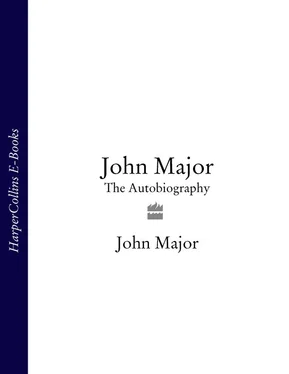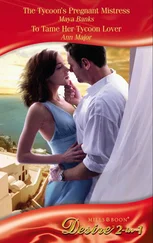We moved to a new home in Brixton in May 1955, when I was twelve. It was a sad comedown, part of the top floor of a four-storey Victorian building in Coldharbour Lane. We had two rooms for the five of us, plus Butch and a pet budgerigar. Dad, Terry and I slept in one room, and Mum and Pat in the other. This second room was used as a dining room and lounge during the day. We shared a cooker on the landing with the other top-floor tenant, a middle-aged bachelor. The lavatory, two floors below, was used by all the tenants. There was no bathroom. We washed at the sink or in a tub.
The house was home over the years to a rich collection of characters. The floor below us was occupied from time to time by three Irish boys who returned home to Ireland whenever taxes were due to be paid. They were huge fun. They played football with me in the street, and one of them, Christie, suggested Pat should run away with him. Another, Michael, actually proposed to her one morning as she left for work, but she wasn’t really listening – a most convenient gift she has always had. Only later did she realise what he had said. It hardly mattered. She was convinced that they would end up with eleven children each. And anyway, she was determined to marry her long-term boyfriend Peter, which she eventually did.
Other tenants included a middle-aged cat-burglar. He was charming and lived with a beautiful girl of about nineteen, who disappeared when he was sent to jail. She used to walk around in her underwear, which was something of a novelty in the 1950s but added pleasurably to my education. The cat-burglar gave me his bets to place on racehorses with a local bookie who operated illegally in the tunnel at Loughborough Junction station. Once he offered me half a crown to see if there were any policemen around before he went out of the house, since he was anxious not to meet any. I agreed to scout for him, but high-mindedly refused to take the money. It probably wasn’t his anyway.
Two other tenants were a Jamaican and his white girlfriend, an unusual liaison for the era, even though there was already heavy West Indian immigration into Brixton by then. He, too, was eventually jailed – for stabbing a policeman.
Life in the flat was very cramped. My father distrusted electricity, and would turn off the radio if there was lightning, or if water was dripping in the room from the ceiling. On wet weekends there was not much to do. I played Subbuteo for hours, running my own imaginary football leagues. Sometimes I would walk down the road to a large bakery and buy bread direct from the ovens. The smell was heaven and the bread warm and tasty.
Very occasionally I would stride up Denmark Hill to Dulwich Village and walk around, looking at smart houses with a warm glow through their curtains. I still remember looking through one window at the comfort inside, and seeing two young children playing board games with their mother. Such a life seemed very different from mine.
One winter evening on such a prowl, when I was thirteen, I was set upon by a gang of boys, and the word ‘Mark’ was cut into my thigh with a razor-blade. I told only my sister, who tended the wound with iodine, and kept my secret. I did not want my parents to know about the incident, and they never did. The branding has long since gone.
I was mystified by our relationship with our landlords. The house was owned by Tom, a man about twenty years younger than my father, and his wife Ann, always known as Nan, a tall, handsome woman with long blonde hair who had three children, Carole, Tom Junior and Nicholas. It was clear that they were not strangers to my parents, and they had offered us a roof when we needed it. When I asked my mother about Tom and Nan she became evasive. It was clear that my questions were unwelcome. She never answered them properly.
Tom was ‘Uncle’ Tom and Nan was ‘Auntie’, a common way for children to address adults those days. They occupied the ground floor and the basement. Their daughter Carole moved out soon after we arrived, and Nicholas was much younger than me, but Tom Junior was my age, and we became firm friends. Later in life he went to work in America, and for years we lost touch, but during the 1992 election he reappeared, unannounced and unexpected, and worked for me throughout the campaign.
Like my parents, Uncle Tom had been on the stage. He was a singer with a magnificent voice and the portly build of the classic tenor. For years he appeared with his sister, Jill Summers, who in her later years achieved fame as Phyllis Pease in Coronation Street . He had toured the halls – sometimes under the stage name of Signor Bassani – and had rarely been short of work.
Tom’s last job in the theatre was to understudy Harry Secombe as Mr Pickwick in the West End. Alas, not for the first time, he drank too much, fell down some stairs and was sacked. He never sang professionally again, although he did sing at home, his voice beautiful and effortlessly wide-ranging. These were unforgettable evenings in Brixton.
It dawned on me that it was not chance that had brought our family to Brixton, but blood ties. Tom’s surname was ‘Moss’, and though that meant nothing to me at the time, I had a hunch about his background. Now I have been able to confirm it. ‘Uncle’ Tom was the baby registered by the musician James Moss and his young wife Mary back in 1901.He was my half-brother. I would have thought it indelicate to put any such suspicion to my parents, and they would certainly have thought the enquiry unpardonable. I was sure I was right, and so were Pat and Terry. The reason we were living there was no longer such a mystery.
My memories of our six years or so at Coldharbour Lane are patchy. Certainly there was never much money in the household. Often the larder was bare until Terry received payment in advance from one of my father’s most regular customers, the marvellous Mr Spiers of Margate, for garden ornaments he had not yet made. And, although I did not know it at the time, Aunt Nan often came to the rescue with loans.
For a while Terry lived in the garage he was working in, because there was so little room at home and he did not wish to spend hard-earned money on lodgings. That stopped as soon as my mother found out. Pat repeatedly put off her marriage to Peter as she and Terry worked to support the family, keep me at school and repay my father’s debts. They were determined that my father should not go bankrupt.
The indignity of our situation affected my parents deeply, although they lived through setback and disaster without ever referring to their distress or ill-health. Not for nothing had they spent years in the theatre. They could act. But my mother was ageing fast, and my father retreated ever more into the past. They were never crabby or miserable, but fought adversity in their own way, laughing joyfully at minor triumphs, apparently certain that things would get better; outwardly optimistic and forever hoping for a future that for them, alas, would never come.
They were stoical in the face of all adversity. As my father became more blind, I became his eyes. I would take his arm when he went to collect his pension. In Coldharbour Lane that meant negotiating several flights of stairs, some steep outside stone steps from the door to the pavement and 150 yards of road to the post office. I learned to watch out for uneven paving stones, unleashed dogs, traffic turning into side roads and all the hazards whose avoidance is routine to the fully-sighted. It was good training for a future Minister for the Disabled.
Too stiff and proud to acknowledge ill-fortune, my father saw his troubles, his health, his blindness, as temporary setbacks from which he would somehow emerge triumphant. My mother, seemingly impervious to every blow, brushed them away as of no consequence, defended and cared for my father and was always unvanquished before a sea of troubles. If I found her with wet eyes often enough, I never found her without hope. If the rain came through the ceiling, as it did – well, the water could be mopped up and the ceiling repaired. If the bills piled up, they’d be paid eventually – no one could doubt that. If their health worsened, it would surely improve. There was always tomorrow, full of wonderful possibilities.
Читать дальше












